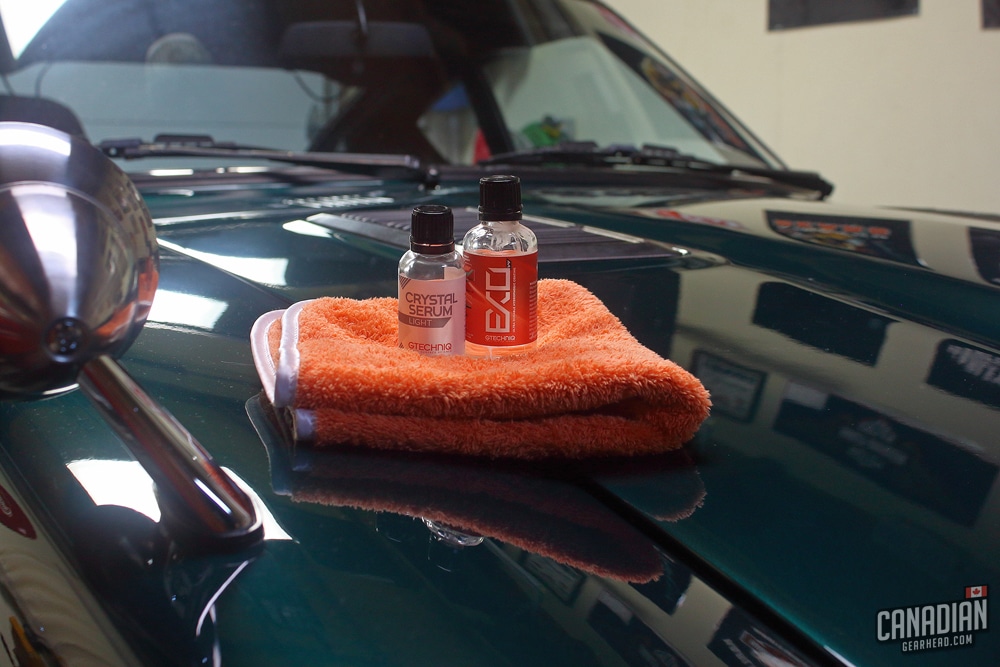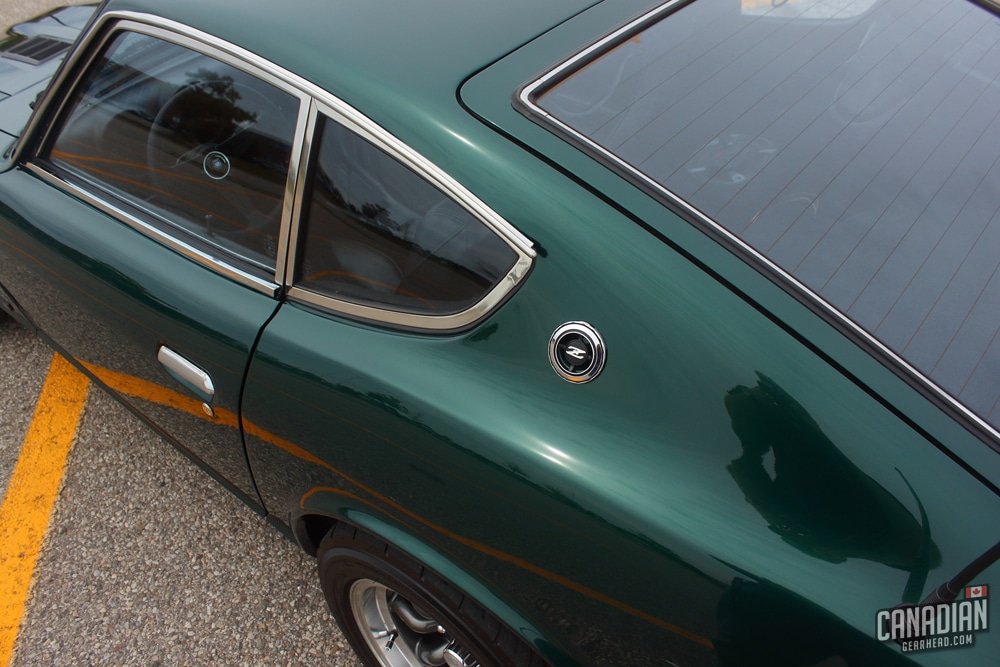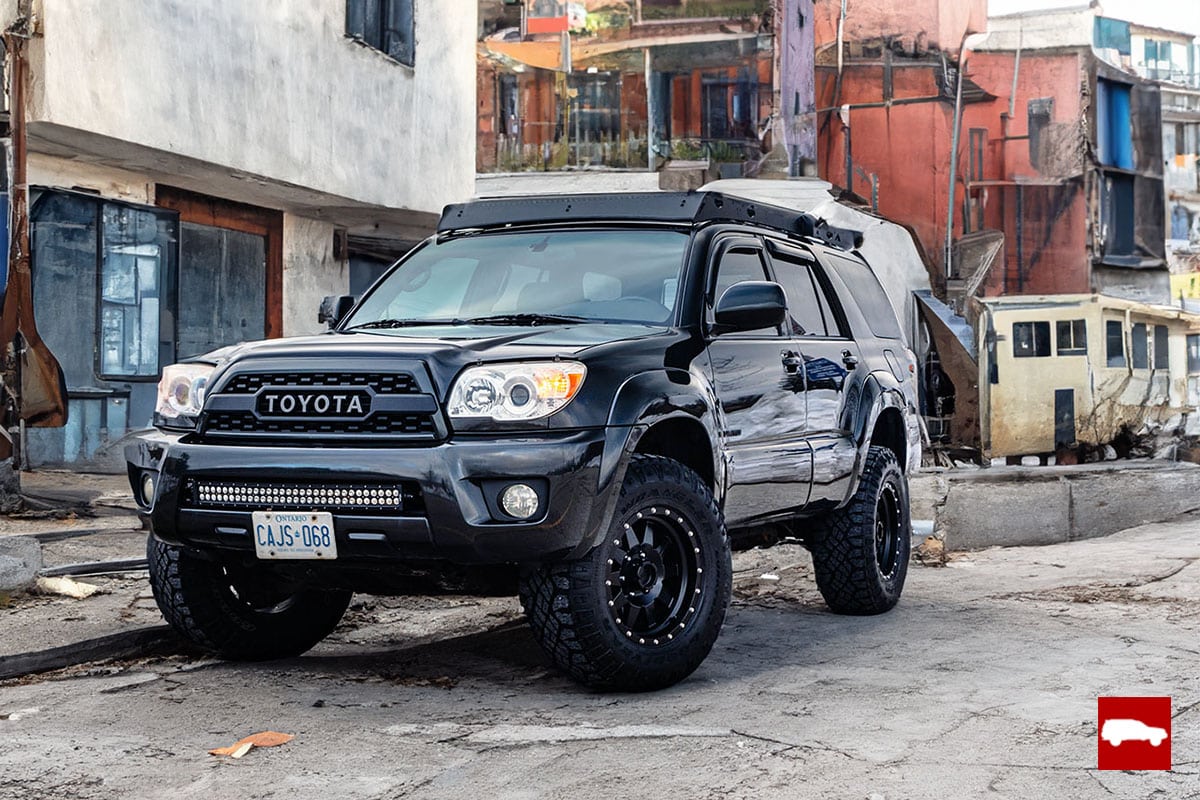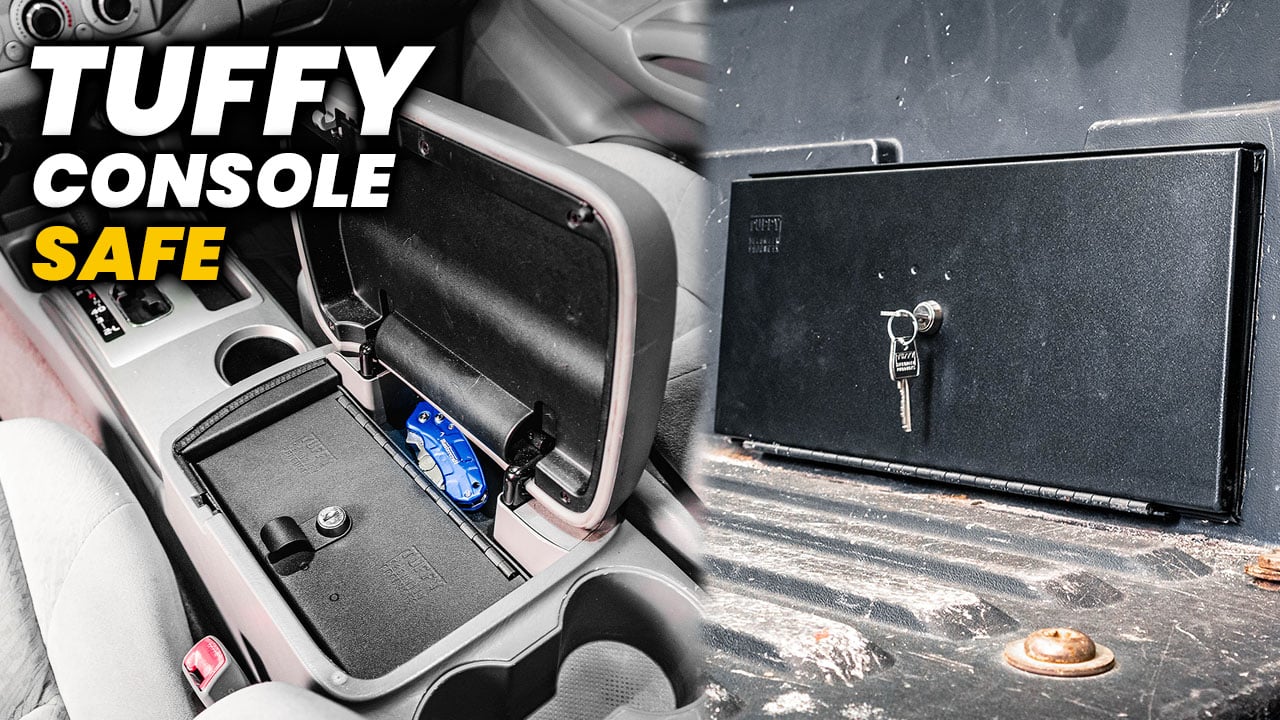There are a lot of options that claim to be the best ceramic coating for your car out there and at times it might seem like they’re all the same. We’ve all heard the usual lingo – Silica Dioxide (SI02), quartz/ceramic/glass, ultra hydrophobic, 9H hardness, blah blah blah.
In reality, it’s true that some of these products are just a different take on the same concept. This leads some people to believe that all ceramic coatings are created equal – but they’re not.
I’ll be honest – the ceramic coating industry is very saturated. There are too many options available right now. The way the detailing industry works is that a few innovative companies will come out with a new product, then EVERYONE releases their own version of it in an attempt to stay relevant.
Having all of these coatings on the market can make choosing one pretty difficult.
If you’ve already decided that a coating is right for you (and it might not be), your next step is to choose the best coating for your vehicle.
Why it’s important to choose the right ceramic coating for you
Choosing a ceramic coating for your car shouldn’t be a quick impulse buy. You need to do your research if you want to get the most for your money. Aside from a cheap coating potentially causing damage to your paint, it’s also quite possible that it won’t live up to the marketing or last as long as they claimed it would.
If the coating fails prematurely, you’ll end up having to do another paint correction before you apply another coating (and if you’ve ever polished a car before, you know that it can be a lot of work!). This is one thing you want to get right on the first try.
I exposed what some of the shady ceramic coating companies are doing in this post. It’ll also give you some tips on what to watch out for and what to avoid. Today we’re going to focus on choosing between the high-quality companies.
There are certain things that matter when you’re shopping for a coating and others that don’t. In my opinion, people seem to focus more on marketing buzzwords than the things that are actually important.
What DOESN’T matter:

The “9H” rating of a ceramic coating
This is possibly the biggest marketing term in the ceramic coating industry, yet it means nothing. It refers to the pencil hardness test.
This test is used to determine the hardness of a pencil (you could consider it a method of quality control in manufacturing.) They compare pencils to see which ones will cause scratches on a coated surface. If they cause the same scratches, they’re considered the same hardness.
9H is the maximum number allowable on the scale. Ceramic coating manufacturers have repurposed this test as a way of rating their products. They’re able to produce a 9H result by applying their coating to a sheet of steel (NOT a painted surface).
This is not an accurate display of performance because ceramic coatings behave differently depending on the substrate they’re applied to.
So does the fact that a ceramic coating was able to remain scratch-free on a sheet of bare steel mean it’s as hard as a 9H pencil? Nope. It means, well, nothing, really.
Keep in mind that the paint on your car is designed to flex because of the stresses the body goes through, as well as the fluctuation in temperature. A flex agent is specifically applied to most automotive paint.
Don’t believe me? Try pushing on your plastic bumper cover. What you’re seeing is not just the plastic denting and popping back out – it’s also the paint flexing while it does that. If your paint was hard, it would have cracked. If 9H rated coatings made the surface of your paint “9H hard”, the paint would crack.
The hardness of a coating in general
To piggyback on my last point, the overall hardness of a coating really doesn’t matter much. A common mistake people make is in thinking that a ceramic coating’s hardness is what makes it scratch resistant. That isn’t really the case.
It’s actually less about hardness and more about slickness and deflection. When the surface is slick, something like your jeans, for example, are less likely to be able to grab onto and abrade the surface. Threats to your paint slide across easier instead of biting in.
How many years a coating lasts
This is another one that people focus on too much. Most cars (especially daily drivers) are bound to develop scratches from contaminants, careless people, and even repetitive washing. I don’t care if your car is coated or not, it’s going to happen eventually.
It might take up to 5 years for scratches to become noticeable on a really well cared for car. But if you decide it’s time for a paint correction at that point, then what good is a coating that is rated to last 10 years?
It has to come off for the scratches to be repaired regardless. Your only options are to give up on the coating early or live with the scratches until it’s time to reapply it.
It’s also worth noting that you can’t “spot correct” specific areas on a coated car like you can with waxes and sealants. Coatings tend to have darkening agents in them (that’s what adds extra gloss) and the difference can be noticeable depending on the lighting.
Fixing scratches properly on ceramic coated cars requires the entire panel to be redone.
What DOES matter:

DIY or professional application?
Will you be applying the coating yourself or hiring a detailer to do it? The reason this matters is because the professionals get to use different coatings than the average Joe does.
They’re like a consumer grade coating but on steroids. They’re rated to last longer and perform better. Usually, professional coatings are the only ones backed by actual warranties from the manufacturer too.
You can save a lot of money by applying your coating yourself. If you’re choosing to go the DIY route, this opens up another important factor when choosing a coating: ease of application. This is an area where many coatings differ from each other even if the end result is similar.
Some coatings are really easy to apply, essentially wax on, wax off. Others are much more finicky and require exact curing times and specific temperature and humidity conditions. Make sure to do your research on how hard a coating is to apply.
The installer
Choosing which professional applies your coating is more important than choosing the coating itself. I know, that’s a bold statement. The truth is, a ceramic coating is only as good as the person applying it.
You can shell out the money for the best coating on the market, but if Jebidiah’s Small Engine Repair is applying it, you might not end up with the best results.
Having a lazy or inexperienced person apply your ceramic coating can result in ugly high spots, swirls, and scratches locked in under the coating, a shorter lifespan, and an overall unsatisfactory appearance.
It’s not as easy as wiping a wax or sealant on your paint. Coatings have to be applied to properly corrected paint in order to look and perform the way they should. If your detailer isn’t a paint correction expert, then they definitely aren’t a coating expert either. The two go hand in hand.
My advice is to shop around for a detailer first. Find someone that everyone recommends and is happy with their work. See their results for yourself. Talk to them and ask them as many questions about coatings and paint correction as you need to.
Once you’ve found a professional that you can trust, go with whatever coating they recommend. It’ll be one that they’re comfortable working with, have tested many times, and use on a regular basis.
The coating’s reputation
With ceramic coatings being talked about as often as they are, it doesn’t take much for a bad coating to get a bad reputation. So make sure to do your research. The info will be out there. If you see people complaining online that ceramic coatings are snake oil, find out which one they tried that caused them to have that opinion.
Take note of how many shops you hear that use coatings from a certain company. If all the best detailers in town are posting photos on social media of them applying the same coating on really high-end cars, that should tell you something. I’ll say it again though – the installer’s reputation is just as, if not more important than the coating’s reputation.
The coating’s appearance
Ceramic coatings have come a long way in terms of appearance. It used to be considered a known downside. They always had a “synthetic” look to them – more of a muted appearance.
The leading coating companies have improved on this now with many of them looking a lot like carnauba wax. Some older formulas might still have a lesser appearance though so it’s something to consider when you’re shopping.
Water behavior: sheeting vs beading
One of the things ceramic coatings are known for is being extremely hydrophobic. Tight, fancy looking water beads might be one of the biggest things that sell coatings, but are they actually a good thing?
Not necessarily. For decades, the level of protection on your paint has been decided based on how water “beads” on the surface. Have you ever heard people with ceramic coatings complain about having problems with water spots though? It’s a pretty common issue. What causes it?
When it rains on a ceramic coated car, the water forms into beads but stays on the surface. Then when the sun comes out, each bead becomes a mini magnifying glass that burns any minerals and deposits in the water onto the paint.
So the reason water spots have become a problem with ceramic coatings is actually because of their fancy water beading characteristics. We’ve been told beading is a good thing, but the reality is that it’s actually what causes water spots.
Water sheeting is a different story. On some coatings, water is more likely to evacuate quickly in sheets rather than forming beads and remaining on the surface. If you live in an area that sees a lot of rain or you tend to park near sprinklers, this is what you want. I suppose this is less of an issue if you live in a desert state.
The coating’s price
Ceramic coatings tend to vary in price so it’s a good idea to shop around until you find something you’re comfortable with. Keep in mind, this is a case where you tend to get what you pay for. The really cheap Chinese coatings won’t look as good, perform as well, or last as long as the more expensive coatings.
This is also a factor in choosing the detailer that will apply the coating if you aren’t doing it yourself. Remember, good work isn’t cheap and cheap work isn’t good. Sometimes it’s better in the long run to buy once and cry once!
Choosing a coating: Final thoughts
Try to focus on the features that actually matter to you when you’re deciding what ceramic coating is best for your car. Hardness ratings and lifespan ratings aren’t helpful to you – instead, judge a coating based on its performance, who installs it, and its reputation in the car community.

Tim is the creator of Canadian Gearhead. His experience with auto detailing and working for Toyota shows through all of the articles posted here. He runs the Canadian Gearhead site and YouTube channel full-time now and currently owns a 2007 4runner, 2006 Tacoma, and 1991 MR2. Read more about Tim:





Leave a Reply